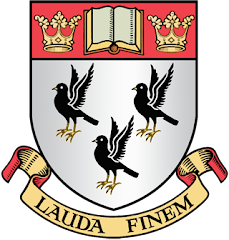Part One:
Whilst the majority of my blog posts have been about school issues, I thought today I would reflect on the World Cup. South Africa has always been a country which has fascinated me, I would very much like to visit one day but as a History teacher I always followed closely its long struggle against apartheid.
In the early years of my teaching career South Africa was very much a pariah nation. At that time there was a sporting boycott designed to put pressure on the white government to end apartheid. There were also calls by many to boycott South African goods. At this time I taught units on American Civil Rights and was struck by the parallels between the situation at that time in South Africa and the situation in the U.S. in the 1950s and 1960s.
Then, my school at that time announced that we were to be visited by a South African school team. As a young, idealistic teacher I was deeply troubled by this. It appeared that we were breaking the sporting boycott that was in place at that time. The arguments were that the boycott applied to international sport and not to school sport, this was undoubtedly true but nevertheless I was uncomfortable with this. I plucked up courage and raised the issue. It turned out that a number of people shared my view. There was a healthy debate as to whether the tour should be hosted. The School decided to go ahead although those of us who were uncomfortable with that decision were allowed not to have any involvement in the hosting of the fixtures. On a simpler, personal level I did not buy any South African goods at that time. Both of these were small, perhaps pointless gestures but international pressure certainly did play its part in the changes which were to follow.
Thus, it was that my interest in the politics of South Africa was developed. Ever since then I have followed what has happened in that country with interest. I was delighted when apartheid ended and watched with interest when Nelson Mandela was freed. I went to the Wembley concert after he was freed when he spoke to the crowd, a very memorable day.
It is thus fantastic today to see the changes that have occurred in the country since then. The stadiums at the World Cup are packed with people of all colours enjoying the football and the culture and passions of the country are clearly on show. I very much appreciate that below the surface there are still significant problems to be faced but I would like to think that those of us who in our own ways protested about the apartheid regime played our part in the journey to the World Cup being hosted in a multi-racial South Africa today.
Part Two:
Totally unrelated is my other link to the World Cup. I used to run the School football team at my previous school. We took part in a national schools’ competition and one year made the semi-final. In this game a last-minute goal by my substitute centre-half took the game into extra-time and then to penalties. The penalties went to sudden death with my time going first. We scored, so the opposition needed to score to stay in the cup. Their young right back stepped up and to my relief missed the penalty. His name…Frank Lampard who now takes penalties for England. Thus, if we do get to a penalty shoot-out and he steps up please remember that you read it here first that under real pressure as in a semi-final he has been known to miss!
Part Three:
The School has joined in with an interesting project called ‘Blog the World Cup’. 32 Schools have adopted a country each and are now blogging about their allocated country. At the High School we are following Argentina. I am trying to support this both in suggesting content and in commenting on some of our posts. Year 7 will be developing this further over the next few weeks. I suspect that this will be the first such World Cup project of this sort so it is great to have another link to this year’s tournament! You can find our pages here
Enjoy the World Cup!
Sunday, 13 June 2010
Subscribe to:
Comments (Atom)


